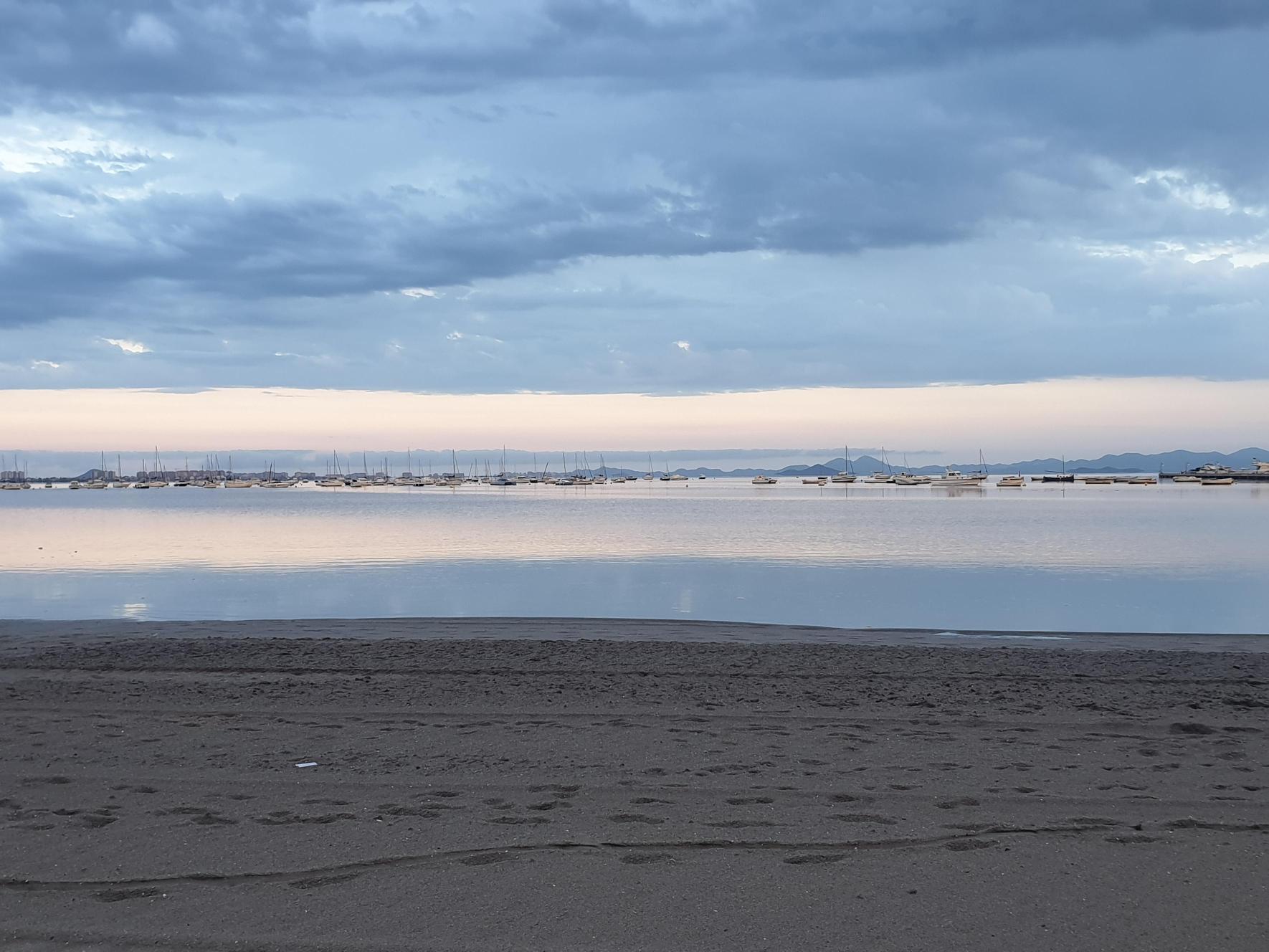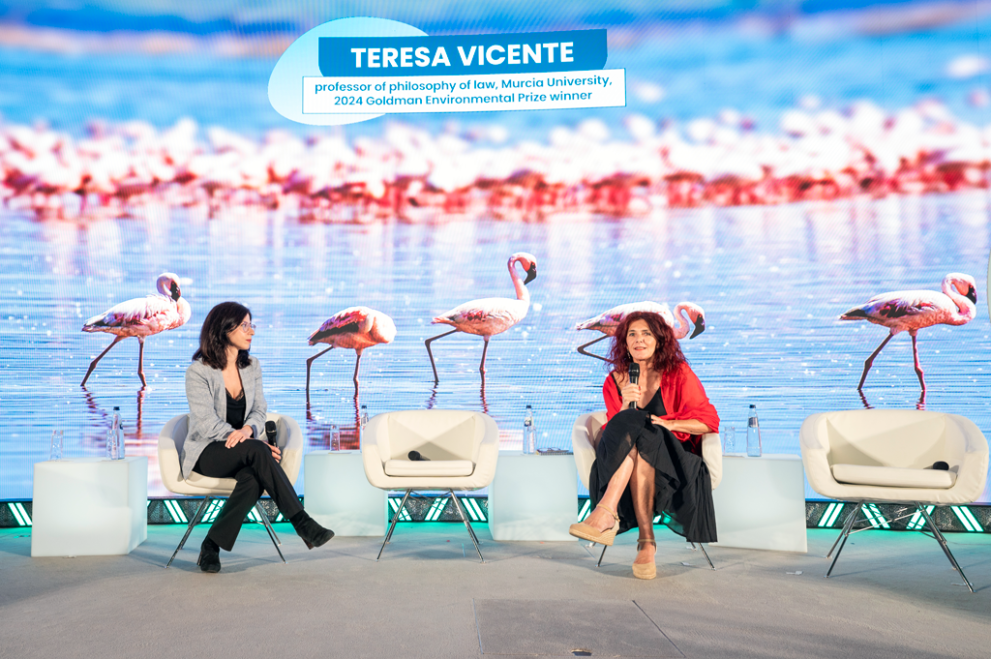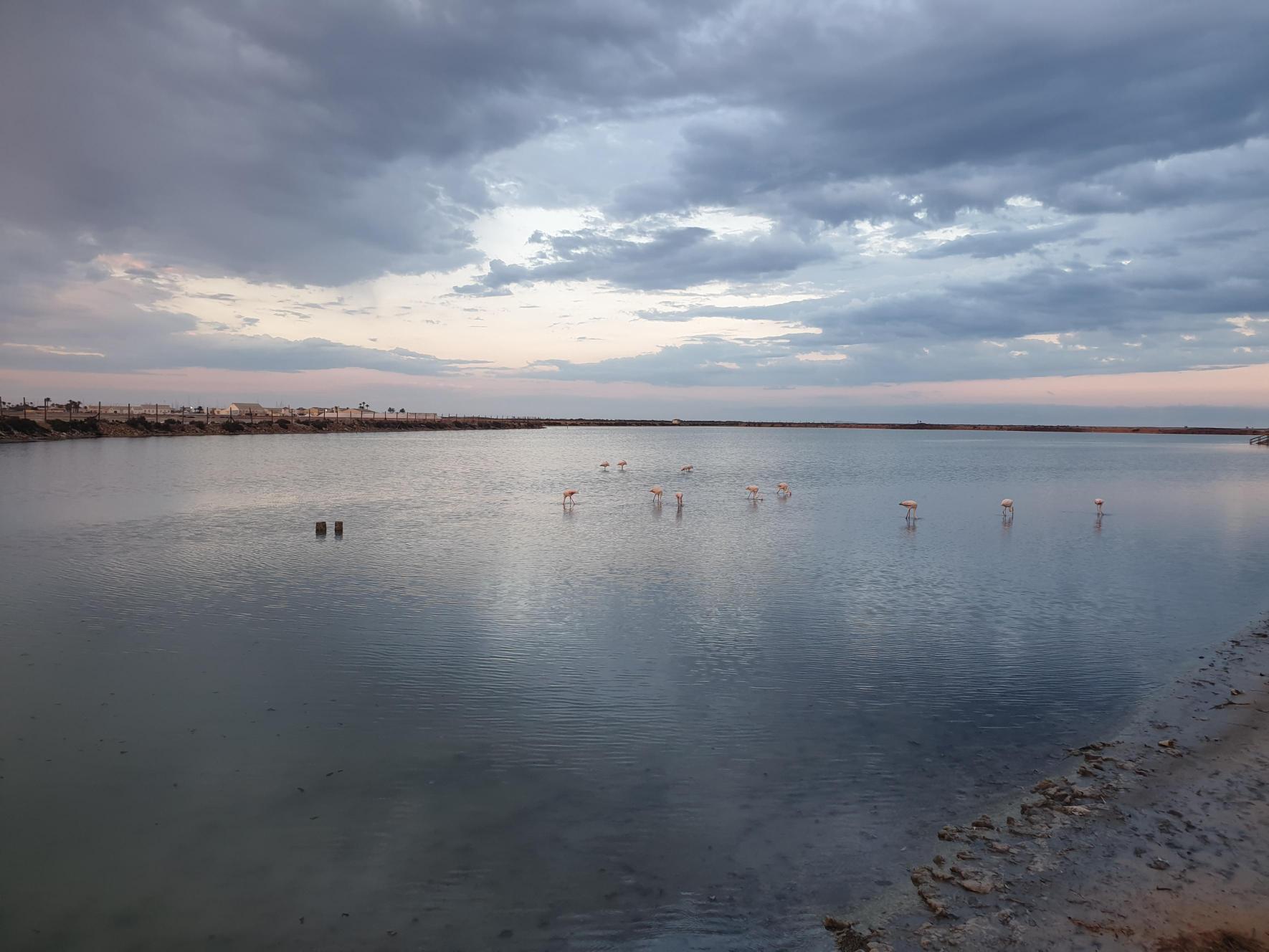Championing Legal Rights for the Mar Menor
What implications does the Mar Menor’s legal personhood have for environmental protection and conservation?
Teresa Vicente, a distinguished academic at the University of Murcia, is a leading advocate for environmental law. She has garnered international recognition for her groundbreaking work in securing legal personhood for the Mar Menor, Europe’s largest saltwater lagoon, located in the Spanish southeast region of Murcia.
Her efforts have culminated in a historic legislative victory that grants the Mar Menor its own legal rights, setting a precedent for environmental protection worldwide. Recently, Professor Vicente visited Brussels to participate in the EU Green Week 2024 as a key speaker and she took some time to discuss with Monica Garcia Quesada from REVOLVE, about the efforts, challenges, and environmental consequences of Mar Menor’s legal victory.

1. You have been a leading advocate for the law that grants the Mar Menor legal personhood, recognizing it as an entity with its own rights. Could you explain the implications of this regulation and how it changes the approach to protecting and restoring the Mar Menor?
The regulation granting legal personhood to the Mar Menor marks a radical change in environmental protection. By recognizing the lagoon as a legal entity with its own rights, we transcend traditional environmental management approaches that often fall short of addressing ecological damage. This legal status endows the Mar Menor with the right to exist, to be protected, and to be restored. It allows any individual or organization to advocate on behalf of the lagoon in court, ensuring that its interests are represented in legal and policy decisions.
The regulation granting legal personhood to the Mar Menor marks a radical change in environmental protection.
This paradigm shift underscores the intrinsic value of natural ecosystems and holds all stakeholders accountable for their preservation and restoration.

2. Could you share an overview of the current environmental situation in the Mar Menor? What are the primary factors that have contributed to its degradation?
The Mar Menor is experiencing severe ecological distress. The primary factor contributing to its degradation includes agricultural runoff, which introduces excessive nutrients such as nitrates and phosphates into the lagoon, leading to eutrophication. This nutrient overload results in massive algal blooms that deplete oxygen levels, causing fish and other marine life to die off.
Additionally, urban development and tourism have increased pollution and physically disrupted the lagoon’s natural state. The situation reached a critical point in 2019 with a significant die-off event, highlighting the urgent need for comprehensive protective measures.
3. What solutions do you believe are most viable for restoring the ecological health of the Mar Menor?
Restoring the Mar Menor’s ecological health requires a multifaceted approach. Key solutions include implementing sustainable agricultural practices to reduce nutrient runoff, enhancing wastewater treatment infrastructure, and establishing buffer zones to filter pollutants before they reach the lagoon. It is also crucial to engage in active restoration projects such as replanting seagrass beds and restoring natural water flow patterns.

Public awareness and community involvement are essential in ensuring ongoing support and compliance with protective measures. Legal personhood for the Mar Menor reinforces these efforts by providing a robust framework for enforcement and advocacy.
4. What are the biggest challenges and obstacles currently facing efforts to save the Mar Menor? How can these be overcome?
One of the biggest challenges is balancing economic interests, particularly in agriculture and tourism, with the need for environmental protection. Resistance from stakeholders who fear economic loss can be significant. Overcoming these obstacles requires clear communication about the long-term benefits of a healthy Mar Menor, both ecologically and economically.
Collaboration across sectors is crucial.
Policy enforcement is another critical challenge, necessitating strong regulatory frameworks and sufficient resources for monitoring and compliance. Building broad coalitions that include government agencies, local communities, scientists, and non-governmental organizations can help align efforts and foster a shared commitment to restoration.

5. Looking to the future, what advice would you give to policy-makers, activists, and researchers working on similar environmental issues? What lessons from the Mar Menor can be applied elsewhere?
Policy-makers, activists, and researchers should prioritize the recognition of natural entities as rights-bearing entities to foster a more profound respect and legal protection for ecosystems. The Mar Menor experience underscores the importance of grassroots mobilization and public engagement in driving legislative change. Collaboration across sectors is crucial—engage with local communities, utilize scientific research to inform policy, and ensure transparent decision-making processes.
Lastly, persistence and resilience are vital; significant environmental change often requires sustained effort over many years. The success of the Mar Menor initiative shows that with dedication and collective action, meaningful environmental protection is achievable.

Useful links
- Teresa Vicente offers a comprehensive analysis of her approach to environmental protection in her book, written in Spanish, Justicia Ecológica y Derechos de la Naturaleza.